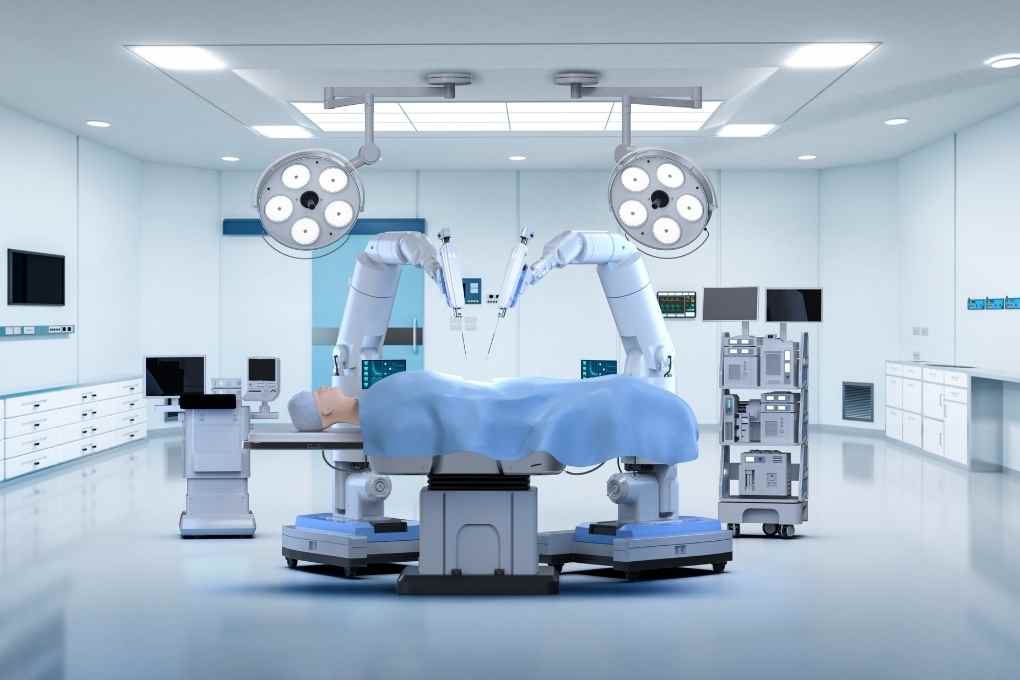The Growth of Telemedicine in a Post-Pandemic World
Technology is “transforming the healthcare industry in remarkable ways.” enhancing patient care and streamlining medical processes. This article explores how technological advancements are revolutionizing healthcare and the benefits they bring to both patients and providers.
Electronic Health Records (EHR)
One of the most significant advancements in healthcare is the transition from paper records to electronic health records (EHR). EHRs enable healthcare providers to securely store and access patient information. This digital system enhances accuracy and facilitates the sharing of information among providers. For example, when a patient sees multiple specialists, each can access the same up-to-date medical history, leading to better coordination of care and a reduction in errors.


Telemedicine
Telemedicine has gained immense popularity, particularly after the COVID-19 pandemic. It allows patients to consult healthcare providers remotely through video calls or mobile apps. This is particularly advantageous for individuals in rural areas or those with mobility challenges. By eliminating the need for travel, telemedicine saves time and enhances accessibility, allowing patients to receive medical advice, follow-up consultations, and even remote monitoring of chronic conditions from home.
AI and Machine Learning
Artificial intelligence (AI) and machine learning are revolutionizing disease diagnosis and treatment. These technologies can swiftly analyze vast amounts of medical data, helping doctors identify patterns and make accurate predictions. For instance, AI can aid in the early detection of diseases like cancer by analyzing medical images such as X-rays and MRIs, leading to timely interventions that can save lives.


AI is also being utilized to develop personalized treatment plans based on a patient’s unique health data. By considering factors like genetics, lifestyle, and medical history, AI helps physicians tailor treatments for better effectiveness.
Wearable Devices
Wearable technology, including fitness trackers and smartwatches, is becoming commonplace in healthcare. These devices monitor vital signs, physical activity, sleep patterns, and more in real time, empowering individuals to take control of their health. For example, users can track their heart rate during exercise or assess their sleep quality at night, providing valuable insights for informed health decisions.
Robotics in Surgery
Robotic-assisted surgery is another area where technology is making significant strides. Surgeons can perform precise and minimally invasive procedures using robotic systems, resulting in faster recovery times, reduced pain, and fewer complications for patients. These robotic tools allow for smaller incisions during operations, leading to less scarring and quicker healing.


Improved Communication
Technology has enhanced communication among healthcare professionals. Tools like video conferencing and instant messaging facilitate effective collaboration between doctors, nurses, and specialists. This real-time communication ensures that everyone involved in a patient’s care is aligned, leading to improved outcomes.
Health Apps
The proliferation of health apps has made it easier for patients to manage their health. These applications allow users to track medications, schedule appointments, and quickly access test results. Some even provide reminders for medication adherence or upcoming check-ups, empowering patients to take a proactive approach to their health management.
Data Analytics
Big data is crucial in modern healthcare, allowing providers to analyze trends and improve services. By examining extensive datasets from various sources, healthcare organizations can identify risk factors for diseases and develop preventive measures. For example, data analytics can help monitor disease outbreaks or evaluate the effectiveness of public health initiatives.


Challenges Ahead
Despite these advancements, there are challenges in fully integrating technology into healthcare:
– Privacy Concerns: Safeguarding patient data is vital as more information is stored online.
– Access Issues: Disparities in access to technology and high-speed internet persist.
– Training Needs: Healthcare professionals require adequate training to effectively utilize new technologies.
Conclusion
Technology is significantly reshaping the healthcare landscape, offering numerous benefits to both patients and providers. Innovations such as electronic health records, telemedicine, AI diagnostics, and wearable devices are enhancing patient care and increasing efficiency.
As technology continues to evolve, we can anticipate even more groundbreaking developments that will enhance our capacity to prevent disease, treat illnesses, and improve overall health outcomes. Embracing these changes is essential for fostering a healthier future for everyone.
Understanding “How Does Sleep Cycle Affect Your Health?“. Irregular sleep patterns can result in serious health problems such as obesity, diabetes, and heart disease. It is important to maintain a consistent sleep schedule for improved well-being.
Written by VeniVidiVideo
Comments
This post currently has no responses.